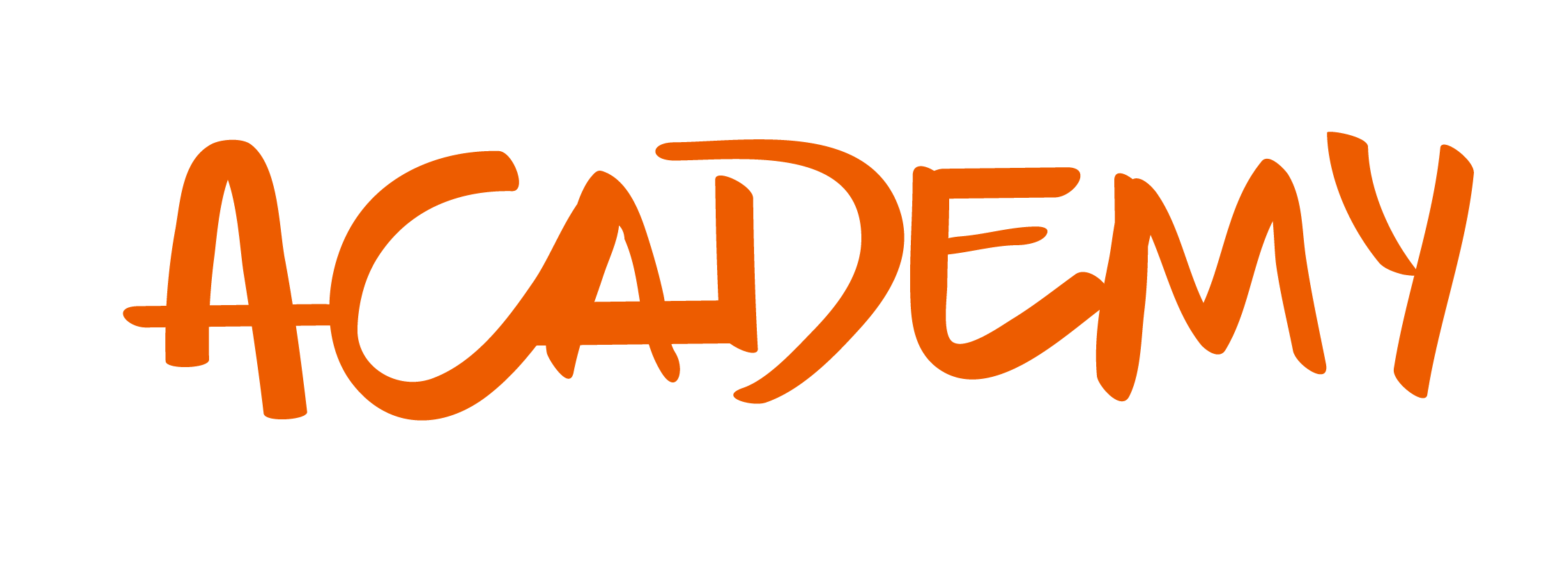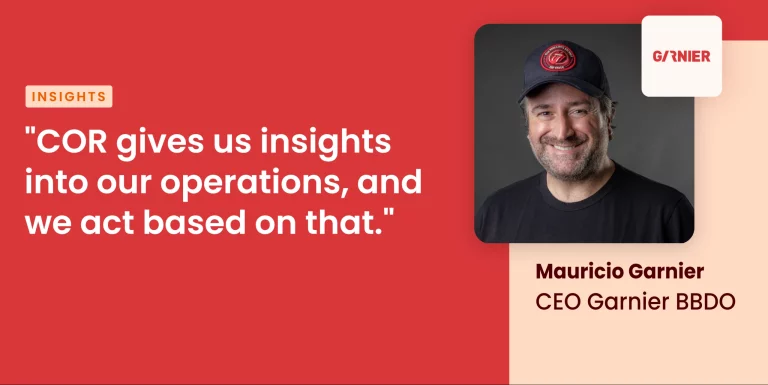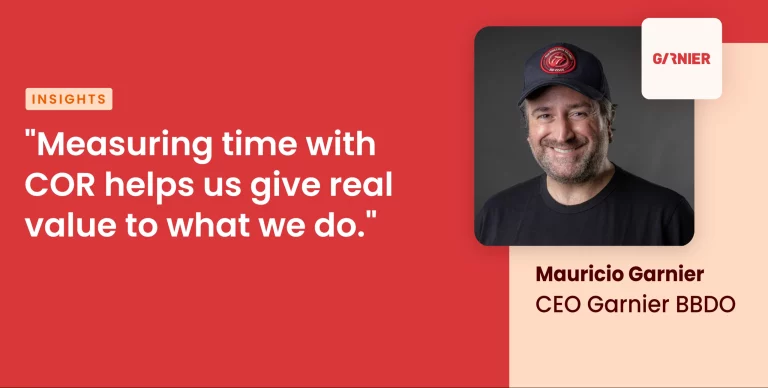Organizations that fail to emphasize project management experience project failure 50% more than those who value it.
This is a loss for these organizations in many respects. No matter what the specific project, these businesses will lose money and time. Plus, their reputation will take a hit, impacting future projects and client relationships and potentially causing them to miss out on business opportunities.
Every successful project demands the expertise of a strong project manager and a carefully-honed methodology. No matter what the type of your organization — whether it’s a startup, long-established organization, huge corporation, or tiny agency — you must be able to rely on the skills and competencies of a qualified individual or team to take the project to completion.
At your small agency project managers are critical members of your team. Yes, you may be operating with a lean budget, but this relationship is critical for solidifying your reputation or building one from the ground up. They are the ones who communicate with stakeholders and the marketing team alike. They set and track milestones. They choose and instruct team members on the best project management software for the specific initiative. They establish due dates. And they hammer out the pricing model.
These are just some of the tasks that project managers accomplish. And this is just part of why they are such pivotal members of your team. Despite the fact that they are operating behind the scenes, they are critical for your project lifecycle — this one and the next and the next.
How Does a Project Manager Fit into a Creative Agency?
A project manager does far more than simply create checklists and update Excel spreadsheets and to-do lists. Any agency, this individual, or team is the backbone of the organization.
Social media campaigns, digital advertising, email marketing, and website overhauls are just some examples of the types of projects a marketing agency is tasked with initiating and completing, and the project manager is the one who ensures they are performed according to the highest standards.
Essentially, the project manager acts as a middleman, establishing a sense of order. Their responsibilities include:
- Establishing a timeline for the full project and benchmarks
- Time-tracking how long individual tasks are taking
- Forecasting the budget necessary for the entire project
- Choosing and establishing project management systems to complete initiatives
- Considering the scope of the work
- Communicating with every member of the team and stakeholders
- Determining the key deliverables involved
- Laying out requirements and ensuring that everyone understands them
- Monitoring project progress and stepping in when necessary
- Overseeing the workflow and delegating responsibilities
- Performing resource management (if the agency employs a resource manager, then working closely with this individual)
- Promoting teamwork and a collaborative spirit.
Benefits of Project Management at Your Agency
1. Improved Efficiency and Quality of Services
One of the most important responsibilities of a project manager is to streamline the entire process. In other words, they increase efficiency at your organization, allowing you to perform your activities more quickly. They will also enable you to improve productivity.
That’s because project managers essentially “do it all” — but they do it behind the scenes. They break down the project into manageable components and assign each individual piece to the team member who is best equipped to take it on. They also assign deadlines and establish appropriate benchmarks along the way.
This not only makes the project more digestible for everyone involved but also clarifies expectations. Each team member understands what they are supposed to be doing and when, and every stakeholder knows what they, in turn, can expect in terms of outcomes.
A more efficient process ultimately means that you can deliver results more quickly. It also means that the product or service you do deliver is of high quality.
2. Streamlining the Project
This goes hand in hand with introducing efficiency to the process. A project manager simplifies the process of developing and bringing a new product to marketing. They reduce the need for extensive delays and allow you to envision multiple aspects of the project more realistically, from when you can turn it around to managing expectations to gathering requirements and meeting the needs of your client.
This reduces the stress and headaches your team members so often experience throughout the project lifecycle. It will also allow you to gain a solid grounding with clients and stakeholders, helping you solidify your agency’s strong reputation.
3. Optimum Performance
Far too often, small agencies ask employees to wear many different hats. This is only natural, since your resources, including personnel, are stretched thin. And while it is everyone’s job to put in the effort to bring a project to fruition and make it successful, project management should not be the shared responsibility of all the team members.
This is why having a dedicated project manager is so important. The fact is, everyone, has their area of expertise, and when, say, a social media manager is also tasked with performing the responsibilities that should fall under the purview of a professional whose job is project management, they will only end up overtaxing themselves. But when you introduce a dedicated project manager who has the requisite expertise, skills, and years of experience to back up their qualifications, other professionals have time to devote to their actual responsibilities.
This is necessary for the overall success of the project. Team members will be able to focus on their jobs and maximize their performance, thus contributing the skills and qualities they are best at.
4. Spotting Threats
There are a huge number of potential challenges and obstacles your team will have to overcome in order to achieve success with your new project. Fortunately, a project manager is particularly adept at identifying them before they wreak havoc on your business and project.
For example, consider scope creep. This occurs when a project exceeds the boundaries of the requirements you and your clients have established from the very beginning. As stakeholders add more and more features they want, the project can quickly become unmanageable, escalating far beyond what the budget and timeline can produce.
Marketing agency leaders know how frequently this can happen. But a skilled project manager can rein it in, preventing scope creep from derailing your project and sending it wildly off course. Early on, they will ensure that the stakeholders understand what will happen to the overall project and its various components if they continue to add requirements. They will create a statement of work and have the client sign it to avoid any issues down the road.
If this is not enough to dissuade stakeholders from continuing to “bloat” the project with features, then a professional can work with them in real-time, helping them prioritize their asks and reconfigure the budget and timeline.
Or, they will recognize when specific skills or competencies are lacking on the team and work closely with leadership to ensure that they find a way to address the gaps, whether they are obvious or not.
5. Greater Scalability
Your marketing agency may be small now, but more than likely, it won’t stay that way forever. Have you anticipated a future when you will be taking on a huge number of projects?
This is yet another critical reason for a project manager to play a role in your organization. As you grow, this professional will help you manage the various projects and clients you acquire. they will prove foundational in keeping everything streamlined, allowing you to continue to deliver projects successfully, all while maintaining the standards of quality that your existing clients and consumers have come to expect.
Meanwhile, they can also establish a system for keeping each individual project on track, all while your agency achieves greater scalability and grows in terms of work and size.
6. Monitoring Progress
Your team may very well have an established project-management system in place. Perhaps you already use software like Trello to delegate activities and responsibilities and track progress.
But what’s even better than technology is a dedicated professional plus technology. Your project manager will make it their job to monitor the progress of your entire project and each unique initiative or milestone that takes place along the way. If hiccups occur — and, of course, they will occur — they will spot the problem immediately. From there, they will take strides to rectify the issue so that it doesn’t interfere with your outcomes.
7. Introducing Order
When you don’t have a well-honed system in place, projects can become chaotic — and that is absolutely something you don’t want as part of your process. The project manager is the individual responsible for introducing a structure to clarify responsibilities, track tasks, and much more.
They also act as a point person. This person is a go-between, communicating with the client, stakeholders, and team members to clarify objectives, requirements, deadlines, and other elements of the project. This role is extremely important — without it, communication can be overly confusing.
Ultimately, the project manager establishes a sense of order in more ways than one — the order that is much needed for a creative team.
How to Make Project Management a Value-Creating Capability
In today’s highly competitive market, agencies must find a way to set themselves apart from the others in their field. There are many different ways you can do this — the obvious being marketing your own unique and creative services.
But the strength of your team is also an important aspect of your value as an agency. And a skilled, qualified project manager is a critical member of that team.
This is essentially a service that acts as an add-on, helping you build trust with your client or prospective client. Perhaps your project manager is well-versed in specific methodologies, such as agile. Or maybe they are PMP-certified. These qualifications will certainly be impressive to a client.
Moreover, the project manager can also demonstrate the value of your entire agency and team. They can leverage statistics on previous projects that were completed successfully under their leadership and guidance. And because they act as a go-between, they will also relay important information about how your agency works and what they can bring to a client’s project. They will showcase your portfolio and give clients, who are essentially prospective consumers, visibility into your agency’s work and qualities.
Project Manager Challenges in Small Agencies
That said, there are complications and obstacles that can arise, even when you have a project manager in place at your agency. Fortunately, these challenges can be mitigated when you’re cognizant of their threat.
1. Communication
Communication is a challenge in any work environment, and now that so many of us are working remotely, it has become even more of an obstacle. That said, it’s not impossible to hone a foolproof communication system that will work for any marketing agency — even in the midst of a fairly chaotic time.
So, what do you do? It’s the project manager’s job to establish this system, acting as a liaison for the team and clients, as well as ensuring that all team members, part-time and full-time alike, are communicating well with one another.
As we’ve discussed, the project manager is the point person. Therefore, they need to determine the best way to communicate with each key stakeholder and team member.
For example, perhaps they will determine that they’ll use Slack for day-to-day, brief messages — touching base, checking in, asking a quick question, and so on. On the other hand, Zoom might be necessary for larger-scale, more involved meetings.
The point is that although communication is often a challenge for agencies, it is not an insurmountable one. It requires coordination and collaboration, but when you have a talented project manager facilitating it, acting as the go-between, you will find that it’s not the obstacle you thought it could be.
2. Digital Team Collaboration
At the same time, while the project manager does act as the go-between, that is not their only role. Today, nearly every marketing agency incorporates digital activities, even if they perform other forms of marketing, too, such as print or TV advertising. The project manager plays a critical role in carrying out digital marketing campaigns and activities beyond simply being a liaison for the creative team.
Digital team collaboration is an obstacle, of course. There is a mix of personalities, ones that may not necessarily mesh well under every circumstance. There’s the fact, as we’ve touched on, that many teams are currently remote — or even remote for the long-term. And there are plenty of additional difficulties.
To address this, you need a project manager who not only has a background in project management itself but also has experience in the digital marketing sector. In other words, they must be marketers, too. When they understand the ins and outs of the digital marketing process by virtue of having dipped their toes in the water, they will be well-equipped to deliver feedback, address issues, convey messaging in a digestible way, and otherwise facilitate stronger collaboration.
3. Acting as the Spearheader
The project manager is too often regarded as a helper. In reality, they should be seen as a master of ceremonies. Despite the fact that they are often underappreciated, they are one of the most important players on the entire marketing team.
The project manager focuses on the big picture. They determine what, precisely, the organization needs to get the job done, in terms of people, resources, budget, and much more. They plan out the overarching trajectory of specific initiatives and campaigns, determining how they can facilitate these projects in order to meet the larger goals and objectives of the agency itself.
No, they don’t spearhead these campaigns themselves — that’s the job of the creative team — but they do act as the spearheader of the planning elements. They, ultimately, ensure that the job gets done.
4. Keeping the Project on Track
Unfortunately, many projects go off the rails. This is just a fact: projects fail, and that is large because it hasn’t been properly managed. You may have established a budget, a timeline, and goals, but far too often, you simply can’t stay within those constraints.
When you have an expert project manager on the case, however, they will find a way to make it happen. That’s because they keep the project on track.
This is a steep responsibility. And it can’t solely rest on the shoulders of one person, although they may be the one to take the lead. Along with establishing milestones, benchmarks, and overarching objectives for the entire team, project managers must set individual goals for themselves. They must hold themselves accountable for keeping the project on track.
Organization, as you can probably guess, is absolutely critical for this and any facet of a project manager’s responsibilities. Even if they are using the best project management tools, nothing can replace this pivotal skill.
They must also constantly stay abreast of each and every task and challenge associated with the project. They must know all the steps and every individual’s role. What’s more, they must keep every team member informed about what they should be doing at any given moment throughout the process.
A lot can go wrong, and in order to keep the project on track, the project manager must have an eye on many different moving pieces at all points.
5. Seeing the Bigger Picture
It’s all too easy to lose sight of the bigger picture when every worker is down in the weeds, working on their specific piece of the puzzle. But a project isn’t a checklist of several different parts.
It’s far more nuanced than that. Rather than seeing it as a sequence of blocks, a project manager must regard it as an intricate jigsaw puzzle. Yes, there are various pieces, but these pieces don’t necessarily always fit together in the most logical of ways.
That’s why the project manager is always required to consider the big picture. In every problem, they must identify a solution.
They are not just task managers — that’s the wrong way to go about performing the job. While keeping individuals on track is part of the responsibility, the role is more complex — they must also find ways to improve the value of each component and each player.
This is also why the project manager should play a strategic role in the overall planning of your organization. Because they have the big picture in mind, they can not only help you achieve the goals of each individual project or initiative, but they can also help you meet the larger goals of your business.
6. Finding New Clients
Again and again, we have underscored the fact that a project manager is a liaison. But we have also discussed how their role extends far beyond that. They are also, in some respects, a sales representative, acting on behalf of the marketing agency to essentially sell their services to current and prospective clients.
Using their deep knowledge of the business, they will act as the point person for the client, explaining in layperson’s terms how their agency will meet their needs and create an excellent product — that is, marketing efforts. They are experts on their own employer, understanding both the needs of the client and the capabilities of the team.
They will pitch services. They will answer questions. They will keep the client apprised of the agency’s ongoing efforts so that they are up to date at any given point.
This is critical in helping the agency acquire new clients. When a knowledgeable, qualified, and highly skilled professional is detailing how, exactly, the business will solve a problem for the client, the client will inevitably be more able to trust that organization.
The Bottom Line
So, why do small agencies need project management? It’s clear that this is a skill — or rather a compendium of qualities and skills — that can’t be left to anyone. It demands specific expertise and experience. Whether you’re in the early stages of a small startup or are a long-established business, these talents are critical for each and every project you take on.
From planning out the various initiatives to assigning responsibilities to budget appropriately, a project manager is essentially a Jack of all trades — someone who wears many hats but is ultimately the spearheader of your project — and an important member of your agency’s team.















